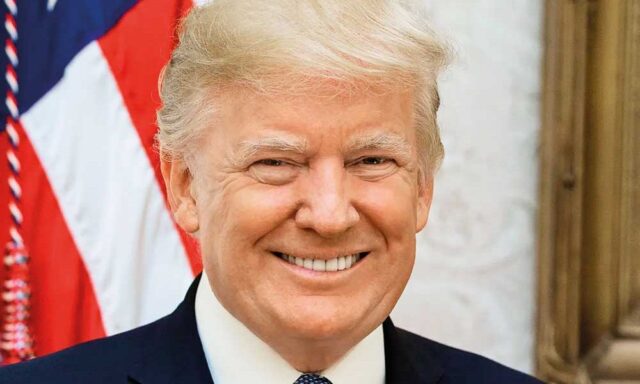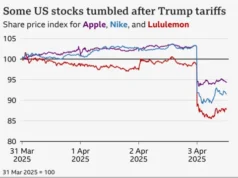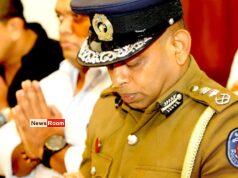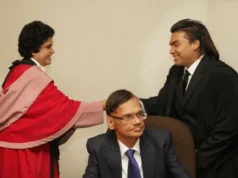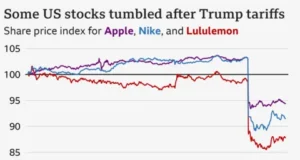By Shamindra Ferdinando
Senior lecturer in economics and head of the IT Department at the University of Colombo, Professor Priyanga Dunusinghe, recently declared that the new National People’s Power (NPP) administration had neither a clear economic policy nor a tangible action plan to address the plethora of serious issues facing the nation.
Prof. Dunusinghe warned of dire consequences unless the government took meaningful measures to overcome the challenges.
Appearing on Derana, the outspoken academic claimed that the investors and the public were in the dark as to the overall government economic policy. Asserting that the NPP government now primarily addressed the day-to-day issues, Prof. Dunusinghe alleged that economic reforms required to stabilize, consolidate and strengthen the economy weren’t being implemented. Therefore, the government seemed to be already late in that regard.
Obviously Prof. Dunusinghe summed up the situation on the economic front quite accurately. The academic seemed to have contradicted former President and UNP leader Ranil Wickremesinghe who had both publicly and privately applauded President Anura Kumara Dissanayake’s economic policy recently. It could be a case of him wanting to appease NPP as he, too, has many a skeleton in his cupboard, like the bond scams or the precipitating of the ongoing debt crisis by borrowing as much as USD 12 billion from the international bond market, at high interest, without having achieved anything tangible to show with such high borrowings, all during the Yahapalana rule or misrule.
Readers should always remember Mahinda Rajapaksa and his team fought a debilitating war to a finish against the world’s most ruthless terrorist outfit, the LTTE, and defeated it against the predictions of all types of pundits, while at the same time kept the economy humming and completed some impressive infrastructure projects, like building a brand new international harbour and an airport, among so many other achievements. Need we say more?
No doubt there were some utter mistakes that can be directly attributed to some of his close relatives he had around him, but Mahinda never betrayed the country. For that matter, who is infallible in this world? The bottom line reveals only one thing that is, he was the best leader to pull the country out of the rut we were in at the time.
President Dissanayake also holds the Finance portfolio, in addition to Defence. In terms of the Economic Transformation Bill, approved by Parliament on July 25, 2024, without a vote, the NPP government has no option but to adhere to the Act. Prof. Anil Jayantha Fernando is the Deputy Finance Minister.
The agreement with the IMF, negotiated by Wickremesinghe and accepted by Dissanayake, in his capacity as the President, is the basis for the controversial Act. In spite of attacking the Economic Transformation Bill, the then Opposition conveniently refrained from seeking a vote on the Bill.
Prof. Dunusinghe has been always forthright in his criticism of questionable economic matters, regardless of who wielded the political power. The government should take such criticism seriously as the overall situation remained volatile though the parliamentary Opposition seems wholly inadequate and indifferent to the challenges ahead.
The pathetic and shoddy handling of severe shortage of rice in the open market badly exposed the government. What really surprised the hapless public is the NPP’s thinking the ‘Rice Mafia’ can be reined in by the issuance of gazettes. The NPP basically repeated President Gotabaya Rajapaksa’s strategy by declaring price controls on essential commodities, like rice, by issuing gazettes. The NPP placed Nadu, Samba and Keeri Samba at Rs 230, Rs 240 and Rs 260 respectively a couple of weeks ago, following talks with rice millers, but it didn’t make any difference.
During the debate over the failed bid to control the private sector running the show, as it pleases, it was revealed that one of the biggest rice dealers in the country and identified as one of those who had been accused of earning unconscionable profits at the expense of the suffering people is on the National List of the SJB though he didn’t get an opportunity to enter Parliament this time. How did he end up in the SJB National List?
The NPP appeared to be making the often repeated mistake committed by previous governments in believing in the strength of their parliamentary group. In the face of public anger caused by wrong decisions, very often even such monolithic parliamentary groups crumble under pressure. The NPP wouldn’t be an exception unless it quickly realized and addressed the shortcomings.
Real challenge outside Parliament
The situation in Parliament is deceiving. It may give the NPP a somewhat false sense of security. Having handsomely won the presidential election in Sept, 2024 by polling 5.7 mn votes, though he couldn’t obtain 50% plus 1 vote, Anura Kumara Dissanayake consolidated the NPP’s position with a staggering 2/3 majority at the parliamentary election in Nov, 2024.
The NPP increased its tally to 6.8 mn votes from 5.7 mn polled at the presidential. Both the executive and the legislature are in the NPP’s hands. The main Opposition Samagi Jana Balawegaya (SJB) has been reduced to just 40 seats against the NPP’s 159 and down to just 1.9 mn votes at the parliamentary election. The SJB performance is nothing but pathetic.
The dismal results at the national elections had made the Sri Lanka Podujana Peramuna (SLPP) that obtained a staggering 145 seats at the 2020 general election irrelevant with their tally reduced to just three seats in the current Parliament.
But, the NPP cannot be lulled into a false sense of security, under any circumstances, as the real challenge is not the Opposition but the promises made by the party to the masses for a system change in the run-up to the presidential and parliamentary elections. That is the undeniable truth. Having come to power as an all-knowing lot, the NPP leadership will have to answer for developments, come what may.
The recent declaration that those earning a monthly salary up to Rs. 150,000 would be exempted from the PAYE (Pay As You Earn) tax to please professionals and at the same time announced the increasing of the withholding tax on fixed deposit interest to 10 percent from 5 percent, thereby hitting those living on already depleted interest incomes below the belt, underscored the crisis the country is in.
President Dissanayake, in his capacity as the Finance Minister, told Parliament on Dec. 18 that this was done in line with a fresh agreement reached with the IMF. In other words, in spite of the change of government and their severe criticism of Wickremesinghe’s policies, the NPP is also on the same track.
The bottom line is that Sri Lanka’s economic direction is firmly in the hands of the IMF and whatever the NPP leaders uttered to the contrary from election platforms to impress the public in the run up to national elections, the government will have to toe the IMF line when it presents a formal Budget in February for the next financial year.
An interim Budget/vote on account covering the first four months of 2025 was approved in Parliament on Dec. 06, 2024 without a vote, at the end of a two-day debate.
Deputy Finance Minister Fernando told Parliament that the delay in debt restructuring, over the last two years, had cost the country an additional USD 1.7 billion in accumulated interest.
Fernando is on record as having said: “We are hoping to complete the restructure of the bilateral debt and international sovereign bonds by December 31.”
The interim Budget would cover the cost of debt servicing and the government expenditure for the first four months of next year. The NPP government has assured the international community that it would continue to honour the international commitments on debt restructuring commenced by the predecessor Wickremesinghe’s government.
Ground realities
During the presidential election campaign followed by the general election, the NPP talked as if it could address issues that plagued Sri Lanka over the past decades. However, over three months after the presidential election, the public now realize that the NPP had no magic wand in its hand and some issues can never be settled.
Of course, some of those who exercised their franchise in support of the NPP at the two national elections are deeply worried and disappointed. But, the fact remains that those who exercised political power had been appropriately dealt with by the electorate and they wouldn’t be in a position to regain public confidence within a short period. That is the reality those who represent the SJB and NDF (National Democratic Front) had to contend with.
It would be pertinent to mention that two of the oldest political parties in the country, namely the UNP and the SLFP, are not even represented in the current Parliament. The UNP and SLFP leaderships are baffled, but that wouldn’t make things easy for the NPP, regardless of its numerical unconquerable position in Parliament. So did the previous Gotabaya Rajapaksa government that was ousted by violent street protests, most probably staged managed from abroad.
Let me briefly discuss the huge challenge faced by Sri Lanka in dealing with large scale poaching carried out relentlessly by the Tamil Nadu fishing fleet in addition to them destroying fish stocks here by bottom trawling. The joint statement issued following talks between President Dissanayake and Indian Premier Narendra Modi quiet clearly indicated that New Delhi wants Sri Lanka to turn a blind eye to the ongoing rape of fishery resources belonging to the people here.
President Dissanayake raised the massive destruction caused by bottom trawling practised by the Tamil Nadu fishing fleet but the joint statement and the comments made by the Indian Foreign Secretary Vikram Misri on this issue at a special briefing indicated in no uncertain terms that India wouldn’t under any circumstances take necessary measures to prevent Tamil Nadu fishing fleet crossing Indo-Lanka maritime boundary.
India seemed to be hell-bent on allowing destructive fishing practices in Sri Lankan waters though it doesn’t allow the same in their territory.
India often emphasises the responsibility on the part of all concerned to deal with poachers in a humanitarian manner. The joint statement went a step further. Referring to the talks, Premier Modi had with President Dissanayake on Dec 16, 2024, the joint statement declared the two leaders ‘underscored the need to take measures to avoid any aggressive behaviour or violence. Would it be fair to pressure Sri Lanka, now beholden to New Delhi for swift economic assistance provided during 2022 and 2023 crisis period, to allow poaching?
How could there be a mutually acceptable solution to the poaching issue when the Indo-Lanka maritime boundary is being violated almost on a daily basis? Although the joint statement referred to the matter at hand as fisheries issues it is nothing but poaching sanctioned by the centre in India.
The joint statement, however, gave the game away when it asserted that the issue should be dealt with taking into consideration, what it called, the special relationship between India and Sri Lanka.
Hats off to President Dissanayake for taking up two related issues at a joint media briefing addressed by him and Premier Modi. A statement issued by the Presidential Media Division (PMD) quoted the NPP and JVP leader as having said that he requested Premier Modi to take measures to stop bottom trawling that caused irreparable ecological damage and also curb illegal, unreported and unregulated fishing (IUU fishing). President Dissanayake also reminded them that bottom trawling is banned in both countries. The President took up the position, therefore tangible action should be taken to stop bottom trawling.
But Indian Foreign Secretary’s response to Sachin Vadoliya of UNI query on President Dissanayake’s request pertaining to bottom trawling and IUU fishing revealed that New Delhi had no intention of addressing the issues at hand. The Foreign Secretary conveniently interpreted President Dissanayake’s comments as meaning the Sri Lankan leader calling for the problem to be solved by both countries together.
The supreme irony is that India exploited the situation to its advantage. The ongoing bid to formalize poaching by the Tamil Nadu fishing fleet under the pretext of some bilateral agreement cannot be condoned under any circumstances.
While declaring New Delhi’s immediate readiness to finalize what Premier Modi called a Security Cooperation Agreement, Sri Lanka is being asked to allow rape of its fish resource. The Illankai Thamil Arasu Kadchi (ITAK), the largest Tamil political party that represented the Northern and Eastern regions remained unsure of its stand on the fisheries issue.
The ITAK must take a clear stand on this problem. But, the NPP, having secured the highest number of seats in the Northern and Eastern regions at the expense of the ITAK at the recently concluded general election, needs to represent the interests of the Tamil fishing community here.
Resumption of debt repayment
The primary challenge faced by President Dissanayake is nothing but preparing the economy over the next four years to restart paying the massive foreign debt owed by the country in 2028. The government’s capacity to meet this particular challenge should be examined taking into consideration Prof. Dunusinghe’s criticism of the NPP’s economic plans.
Sri Lanka, in April 2022, made a unilateral statement on stopping debt repayment. Regardless of promises made during the presidential and parliamentary poll campaigns, the NPP is slow in taking tangible measures to revive the sick economy. The absence of long queues at fuel and gas stations doesn’t mean Sri Lanka is out of the woods yet.
Unfortunately, the Opposition is waiting for problems created by previous administrations to overwhelm the NPP. Having declared that the NPP administration couldn’t last for not more than a couple of months, the Opposition realized that their only salvation is the NPP causing its own downfall.
Perhaps, the NPP should reveal its stand on accusations that the failure on the part of the Parliament to amend the Foreign Exchange Act No 12 of 2017 that allowed unscrupulous people to park billions of US dollars overseas.
Various politicians have given different figures in this regard. Then MP Gevindu Cumaratunga estimated the total amount parked abroad owing the lacuna in the Act at USD 36 billion. His colleagues Wimal Weerawansa and Vasudeva Nanayakkara, too, agreed with the figure declared by Cumaratunga.
Former Justice Minister Dr. Wijeyadasa Rajapakse, PC, estimated the amount of funds parked overseas to be over USD 50 billion. Interestingly, he was among those who voted for repealing the old Act that ensured that exporters brought back export proceeds within a stipulated time period.
The Yahapalana administration repealed the time-tested Exchange Control Act of 1954 at the behest of the then Premier Ranil Wickremesinghe who refrained from voting for it.
The NPP never addressed this issue during campaigning. The NPP also owes the country an explanation as to why the price of a litre of 92 Octane couldn’t be further reduced as during the campaign the then Power and Energy Minister Kanchana Wijesekera was repeatedly accused of taking kickbacks at the expense of consumers.
So far, a litre of Octane 92 has been reduced to Rs 309 from 311 by the NPP. The government has also earned the wrath of the public for putting off the stipulated electricity price revision at a time much of the electricity is generated by hydro power stations at low cost.
The government seems caught in a vortex of problems-ranging from never ending problems faced by the farmers to Indian and US pressure to extend the moratorium on foreign research vessels visiting Sri Lankan ports. The moratorium declared by Wickremesinghe for a period of one year 2024 ended yesterday (Dec 31, 2024). Would it be extended, to allow Chinese vessels to resume visits or would some committee be appointed to take time to appease India, while Sri Lanka sought to reach some sort of understanding with China.

